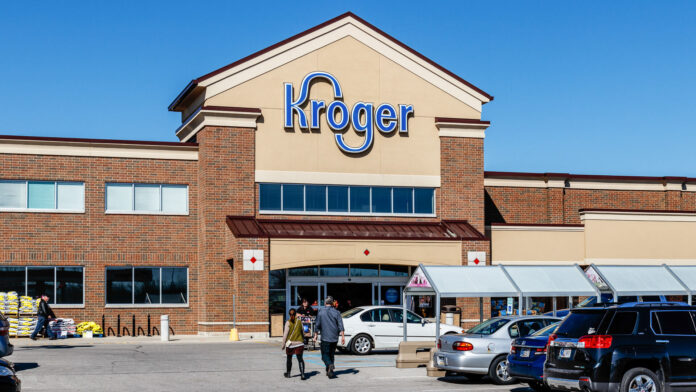A recent report by Consumer Reports found that shoppers at Kroger-owned stores across the United States may be charged more than they expect when paying at the register. It was observed that most overcharges resulted from expired sale tags, mistakes in labeling, and a lack of enough staff.
Pricing Problems Found in Stores Nationwide
It was found by Consumer Reports, working with The Guardian and the Food and Environment Reporting Network, that around half of the Kroger-owned stores studied had pricing errors. Investigators checked stores in 14 states as well as Washington, D.C., including locations in Arizona, Michigan, Oregon, Virginia, Washington, and West Virginia.
Often, the sale tags on products were left in place even after their effective date. A lot of times, people chose things on sale, but then had to pay the regular price at the checkout counter. During the investigation, over 150 cases of disagreements were found. Both common household items, such as coffee, cereal and juice and more luxury items such as salmon, boneless beef and Mucinex, were affected by the recall.
The shoppers were found to have been charged an extra $1.70 on average for impacted items, which was an 18.4% rise from the posted price on the shelf. In a number of situations, the sale labels on clothes were quite old and tricked consumers into wondering why the item was still selling at full price when they wanted to save money.
Also read: French Rapper Werenoi Dies at 31: A Rising Star Gone Too Soon
Root Causes: Staffing Cuts and Manual Errors
Colorado union members working at Kroger were the first to highlight issues with variable prices in the supermarket. The main complaints from hospital workers are about the shortage of staff and fewer hours being worked. Certain stores may have over 15,000 discount tags showing at a given time. With so few staff, it has become too burdensome for all updates to get done every week.
Many employees say that sales prices are usually changed on Wednesdays, though the process tends to be unreliable and sometimes leads to errors. Consumer Reports found that errors tended to appear in the same aisles, indicating those areas were somehow forgotten by the labeling team.
Kroger Responds: Defending Its Practices
Kroger released a statement, saying that the report’s statements are not accurate. In a statement released to the public, the retailer outlined its “Make It Right” policy, which gives staff the authority to fix incorrect prices at checkout. It was mentioned that Amazon checks prices on a massive number of products on a weekly basis in order to keep its accuracy.
Kroger ensures its requirements have not changed and that the number of staff is not lower than what it was last year. Currently, digital price tags are being tested by the company in some stores to improve label accuracy and make all prices visible. Electronic tags connected to the system can offer live updates, preventing old items from sitting around in the store.
Other Retailers Also Under Scrutiny
Even though Kroger is getting most of the attention now, other retailers are facing similar criticism over their pricing. In the same year, a shopper claimed in a lawsuit that Walmart had overcharged them up to 15% on several products. In 2021, Safeway, Albertsons, and Vons settled for close to $4 million over a similar charge of misleading shelf pricing.
Consumer Reports encourages consumers to get involved when choosing where to buy. The organization suggests snapping a pic of the labels while you shop and checking it with the receipt before leaving the store. Should there be differences in the products, customers should ask for a refund right away.
Conclusion
The findings of the Consumer Reports investigation show a concern that affects both retailers and their customers. Due to labels that are old and staffing shortages leading to mistakes at checkout, customers have to keep a close eye on their bills. While Kroger denies any wrongdoing and insists on its commitment to accurate pricing, the findings have raised serious questions about operational oversight and consumer trust in one of the nation’s largest grocery chains.








